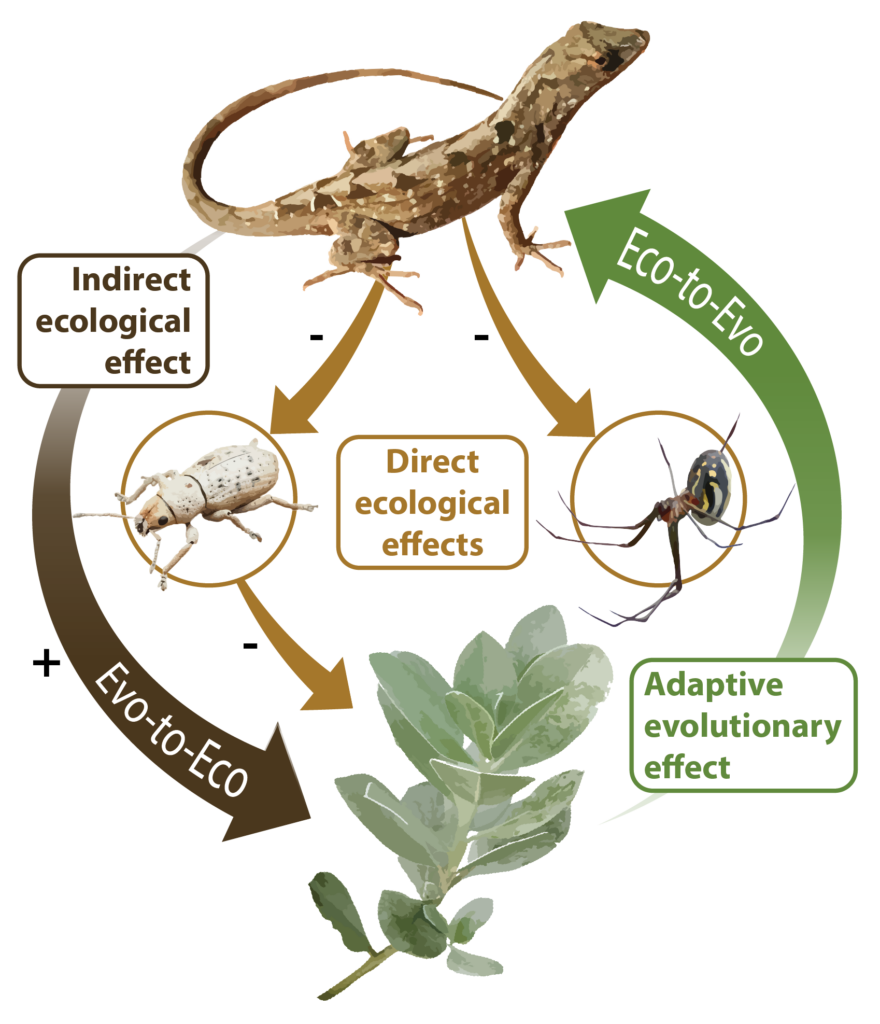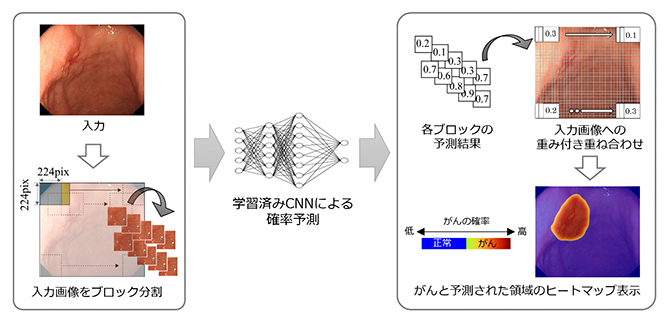2023-06-05 ロードアイランド大学(URI)

A new study by researchers at the University of Rhode Island shows some of the best evidence yet for a feedback loop phenomenon in which species evolution drives ecological change. (Kolbe Labs/URI)
◆しかし、最近では、逆のプロセスについても科学者たちが考え始めています。種の進化が生態系の変化を促すフィードバックループが存在するのかもしれません。ロードアイランド大学の研究者による新しい研究は、カラカヤトカゲの脚の長さの進化がバハマの小さな島々の植生とクモの個体数に大きな影響を与えることを示しています。これは、自然環境でこのような劇的な進化と環境の相互作用が文書化された最初の事例の一つです。
◆研究者たちは、進化と生態系の相互作用を理解することが、人間の活動が世界中で進化と生態学の変化のペースを加速させる中で、環境の結果を予測する上で役立つと述べています。
<関連情報>
- https://www.uri.edu/news/2023/06/the-other-side-of-the-story-how-evolution-impacts-the-environment/
- https://www.pnas.org/doi/10.1073/pnas.2221691120
進化と生態のつながりを実験的にシミュレート: 多様な捕食者の形態が自然の食物網を変える Experimentally simulating the evolution-to-ecology connection: Divergent predator morphologies alter natural food webs
Jason J. Kolbe, Sean T. Giery, Oriol Lapiedra, Kelsey P. Lyberger, Jessica N. Pita-Aquino, Haley A. Moniz, Manuel Leal, David A. Spiller, Jonathan B. Losos, Thomas W. Schoener twschoener, and Jonah Piovia-Scott
Proceedings of the National Academy of Sciences Published:June 5, 2023
DOI:https://doi.org/10.1073/pnas.2221691120
Significance
Eco-evolutionary dynamics capture the reciprocal feedback of ecological and evolutionary processes on contemporary timescales. Rapid adaptation in response to environmental change is well documented, but we lack an understanding of how evolved trait values affect ecological processes in natural systems—that is, evolution-to-ecology connections. Using islands as replicated experimental units, we demonstrate that adaptive variation in lizard limb length dramatically affects ecosystem structure—specifically, short-limbed lizards enhance plant growth. Our findings aid in closing an otherwise well-supported eco-evolutionary feedback loop wherein lizard limb length adaptively responds to vegetation structure and plant growth is influenced by lizard limb length mediated through food web interactions. Our results provide unprecedented support for evolution-to-ecology connections in nature, verifying a key prediction for eco-evolutionary dynamics.
Abstract
The idea that changing environmental conditions drive adaptive evolution is a pillar of evolutionary ecology. But, the opposite—that adaptive evolution alters ecological processes—has received far less attention yet is critical for eco-evolutionary dynamics. We assessed the ecological impact of divergent values in a key adaptive trait using 16 populations of the brown anole lizard (Anolis sagrei). Mirroring natural variation, we established islands with short- or long-limbed lizards at both low and high densities. We then monitored changes in lower trophic levels, finding that on islands with a high density of short-limbed lizards, web-spider densities decreased and plants grew more via an indirect positive effect, likely through an herbivore-mediated trophic cascade. Our experiment provides strong support for evolution-to-ecology connections in nature, likely closing an otherwise well-characterized eco-evolutionary feedback loop.

